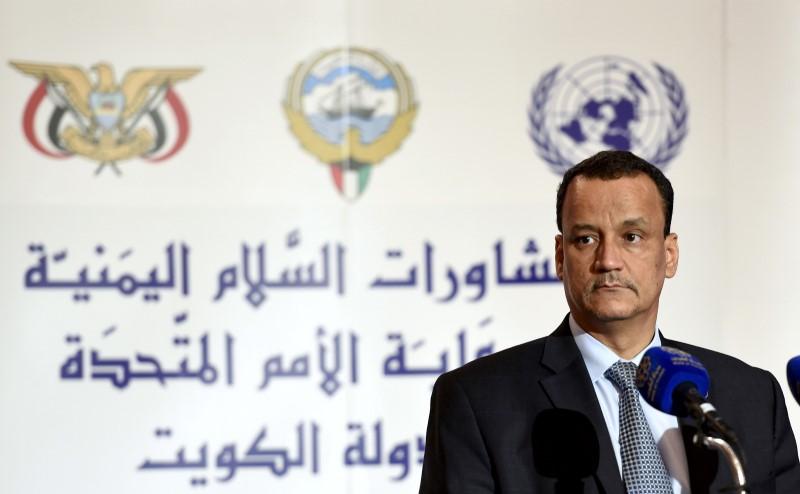Cairo- Mediations and efforts exerted by ambassadors of 18 Yemeni peace-brokering nations proved fruitful in calming down tensions at the peace talks underway in Kuwait.
The ambassadors were able to steer the negotiations back to the topic concerning the implementation of the U.N. resolution 2216. Nonetheless, U.N. Special Envoy to Yemen Ismail Ould Cheikh Ahmed decided to delay the presentation of his proposed roadmap for Yemen.
Sources told Asharq Al-Awsat newspaper that keeping the peace roadmap on hold is to first guarantee the approval of all partaking parties prior to putting the proposal at the table.
Moreover, sources confirm that the roadmap will be officially announced later this week. The U.N. special envoy will also be intensifying meetings with the 18 attending ambassadors, in addition to senior Kuwaiti officials, as to study the final draft of the roadmap.
The roadmap would encompass all propositions put forth by the government’s delegation and the insurgency’s delegation on political, security and military affairs.
The insurgency delegation at the peace talks comprises both Houthi members and supporters of the ousted President Ali Abdullah Saleh.
Sources also anticipate a partial settlement relating to the case of detainees. The U.N. envoy’s office also stated progress on the detainees file at the sessions.
Nonetheless, sources expressed looming fear of the insurgency delegation reneging their stance once again, based on previous experience at the negotiations.
U.N. envoy Ahmed said that the past 24 hours witnessed meetings between both conflict parties and addressed matters pertinent to the upcoming stage in addition to political, humanitarian and economic dimensions.
Meetings have been held for days now, headed by the U.N. special envoy and with the contribution of four members of participating delegations. The U.N. envoy resorted to exclusive small scale bilateral meetings as to overcome issues surfacing at direct meetings between the two conflicting parties.
On the other hand, a prominent Yemeni figurehead assured that the upcoming political settlement will not include those involved in war crimes in Yemen.
Yemeni President Hadi’s advisor Yassin Makawi said that both the ousted President Ali Abdullah Saleh and Abdul-Malik Badreddin al-Houthi will not be a part of Yemen’s future, given that they are considered war criminals and are up for punitive measures by the U.N. Security Council.
